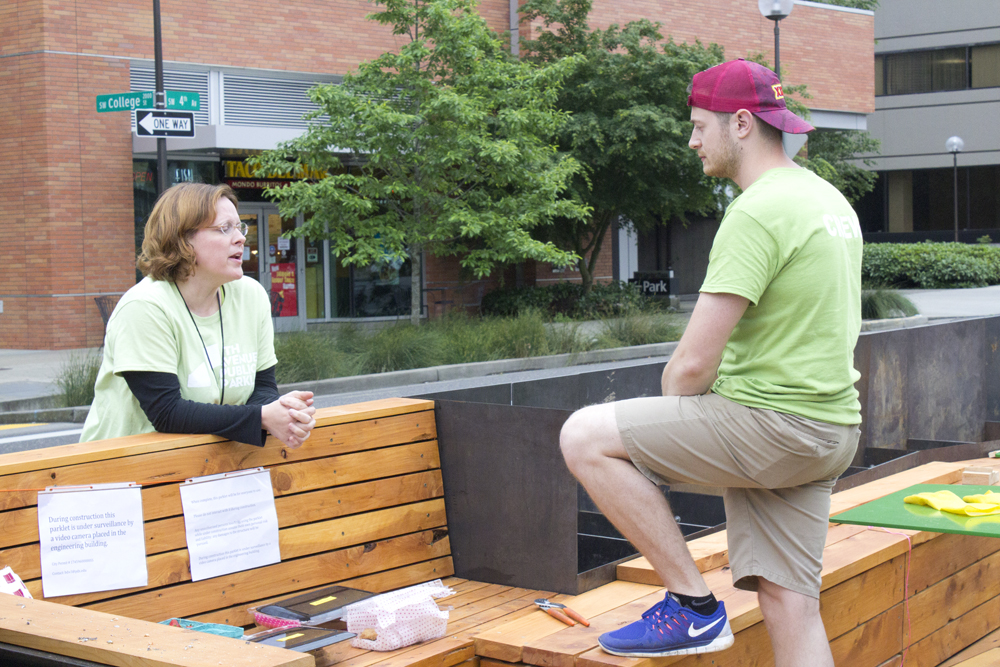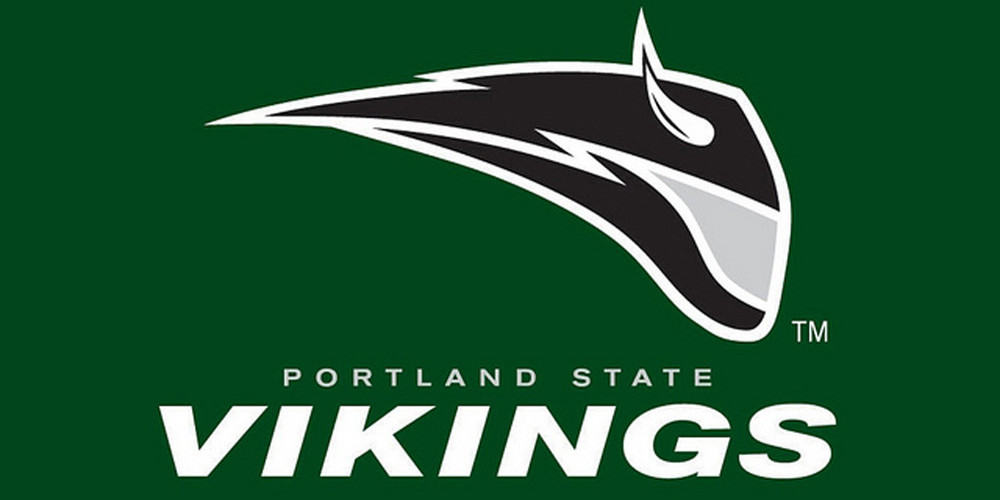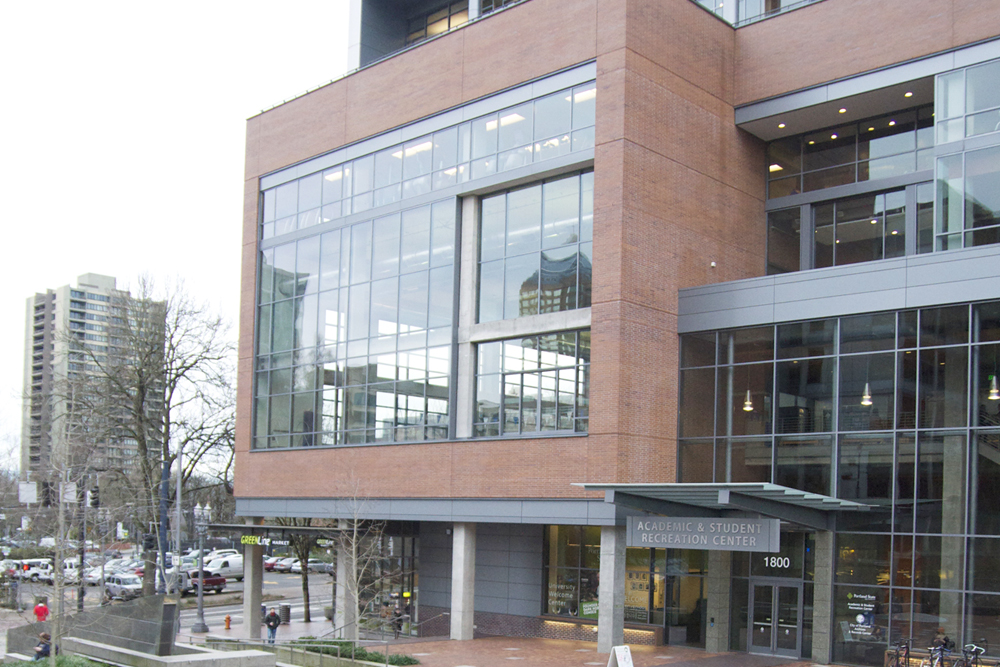Students from the School of Architecture began constructing a parklet near the food carts in the South of Market [SoMa] EcoDistrict on SW 4th on May 24 and 25. The 41-square-foot parklet will be open to food cart patrons and passersby.
Between crowd-funding and fundraising by the SoMa EcoDistrict Steering Committee, PSU’s Institute for Sustainability, and the PSU Foundation, the parklet project recieved $15,640 in cash and kind donations.
Assistant professor in the School of Architecture B.D. Wortham-Galvin has overseen the student project since 2013.
“I am interested in what I call ‘small urbanism’—how little projects can make a huge different in the city,” she said.
Wortham-Galvin is also interested in allowing an urban community to interact with one another, instead of simply walking to the carts to get lunch and returning to each person’s individual offices. She has studied parklets across North America and presented an exhibit of case studies to ISS.
Because the parklet will take the place of two parking spots and some motorcycle parking, fundraisers needed to generate enough to cover the city’s lost revenue from paid parking.
“When people ask if it is permanent, we have fundraised to build it and to pay the lost revenue for the next year,” Wortham-Galvin said.
She added that the city may want to move the parklet. “Whether it stays or not has nothing to do with permanence, but obviously at some point someone will have to take the initiative to keep paying the lost revenue for the city.”
The parklet reaches to the corner of the curb in order to eliminate potential trash buildup.
Lorne Gillingham, one of the students in Wortham-Galvin’s class, said, “All the wood is juniper, which was specifically chosen because it has a natural rain resistance. We tried to stick with very elemental things.”
Michael Coon, a graduate of PSU’s Master of Architecture program, designed the parklet. He said the city has been helpful and responsive to the project.
“At one point we had a canopy, and that got nixed for a few reasons,” Coon said. “One, there were a lot of structural concerns, and two, in the end they said, ‘We would feel comfortable without it because they are hard to deal with for a lot of reasons.’ They were really cooperative and they really loved the idea of it. At the time it was a truly public [parklet]. No one owned it; it was not associated with any restaurant. It was public.”
Coon recalled the community’s enthusiasm and urge to see this happen.
“There are two other public ones hanging out [on] Alberta Street, but they are not associated with food,” he said. “But I would hope, if this is successful, I would like to see more food carts adopt these. It is serving a complete strip of food restaurants, but none of them own it, so they can not say who can come and go, and it is totally there for the pedestrian.”
Coon said he thinks parklets throughout the city would contribute to community building and would also help to “feed the soul.”
“My hope is people are so glad that this is here that they help out and help clean up after themselves.”





